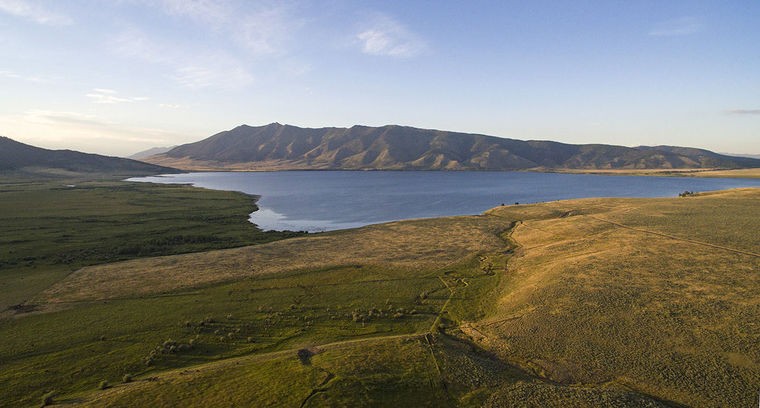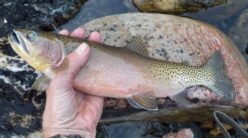Health officials are warning outdoor enthusiasts about the discovery of potentially toxic algae found in a popular East Idaho lake.
A health advisory was issued for Henrys Lake on Aug. 7 by the Eastern Idaho Public Health and the Idaho Department of Environmental Quality. According to the agencies, the presence of Microsystis, Dolichospermum and Aphanizomenon, which are blue-green algae species that have the potential to produce dangerous toxins.
“People recreating near Henrys Lake and Upper Island Park Reservoir are advised to avoid swallowing or inhaling water and to avoid direct contact with water containing visible algae,” a news release from Idaho Department of Environmental Quality.
The agency also said that the toxins cannot be removed by boiling or filtering the water. Anybody who decides to eat fish caught in the area are advised to remove all fat, skin and organs before cooking.
Those who are directly exposed to blue-green algae can experience skin and eye irritation, nausea, diarrhea, numbness of the hands and feet, and/or difficulty breathing. People who experience these symptoms should contact a doctor immediately.
Animals who come into contact with blue-green algae could experience muscle spasms, decreased movement, labored breathing, convulsion and death. Pets who exhibit these symptoms need to be taken to a veterinarian immediately.
According to the Idaho Department of Environmental Quality, blue-green algae, which can create an unpleasant odor, are microscopic bacteria that occur naturally in healthy bodies of water. The physical appearance of the algae is unsightly, and it causes thick green mats along the shorelines. However, the blue-green algae occurs in water conditions that are common during the warmer summer months.
Anybody with questions about blue-green algae should visit www.deq.idaho.gov/water-quality/surface-water/recreation-health-advisories/blue-green-algae/ or contact Andy Olson, water quality analyst at the Idaho Department of Environmental Quality, at 208-528-2650.



